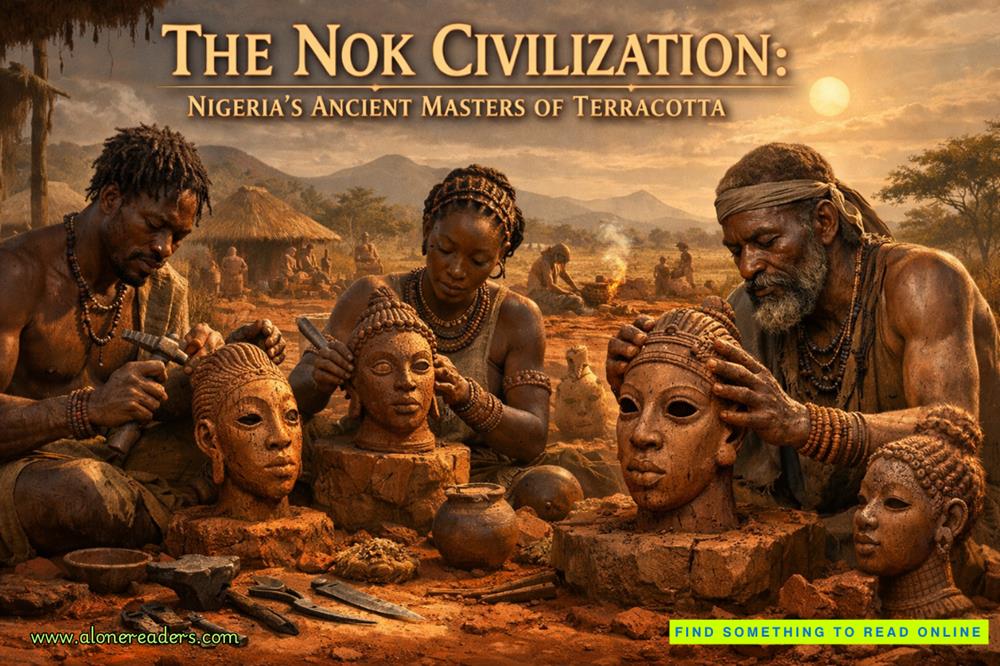The woman standing beside him—her once-blond hair fading into a stately grey—jerked at the demand. “It’s quite all right,” she said, in a faintly warbling tone.
“It isn’t. As a matter of principle”—of which he possessed remarkably few—“I will not be condescended to by a man who imagines himself above me by virtue of birth while failing to exhibit the social graces required of his station.Offer your mother your goddamned seat.”
This time, the man did not mistake it for a request. Like a marionette jerked about by the strings of an unseen puppet master, he jumped up from the couch. “Mama, would you—”
“Yes; yes, of course.” The viscountess slid into his vacated spot and folded her hands in her lap.
Probably it hadn’t been a deliberate oversight on Laurence’s part. The viscountess had a sort of nervous energy to her that suggested she’d been doing a great deal of pacing, and hadn’t wanted the seat anyway. But with just one well-chosen demand, Chris had commandeered control of the room. Not so much as a whisper floated through it. He said, “As it happens, the Archbishop owes me a favor.” Several favors, actually. Chris was not ordinarily in the habit of calling such favors in, since the mere fact that they existed tended to be more valuable by farthan what could be gained from them. A man’s entire attitude could be shifted by that currency, and he was generally loath to surrender the power that came with it. “He will issue a license to me.”
The viscountess wrung her hands in distress. “But the scandal of it all.”
“Mama, there will be a scandal regardless,” Phoebe said. “Is it not best we put it to bed as swiftly as possible? At least then the gossip will include the wordmarriage, and that—that’s preferable, isn’t it?”
To the scandal of being caught in an illicit embrace? Absolutely. And still, at the merest suggestion that an expedient wedding was a necessary thing, the mood of the room shifted toward mourning. Chris half-expected the women present to excuse themselves to don widow’s weeds. It was to their credit, he supposed, that they evinced such loyalty to one of their own. He wouldn’t have wanted his sister yoked to a man like himself, either.
Baxter arrived once more, weighted beneath the strain of dozens of small glasses arranged upon a silver tray and a bottle of whisky tucked securely beneath his arm. How he had made it through the gauntlet of children outside unscathed and without having dropped a single glass, Chris could only guess.
As a guest—even an unwelcome one—the first glass went to him. He said as he sipped, “This evening,” he said. “We’ll be married this evening.”
The viscount choked. “Impossible,” he said. “There’s arrangements to be made—negotiations, settlements, legalities—”
“I think we both know that there is no time for such frivolities.” Not that the viscount had much of a leg to stand upon in the demanding of them. Perhaps, if Chris had come hat in hand, begging permission to marry her. But this was adifferent situation entirely. Phoebe needed a damned husband now, however she had to get one.
“Frivolities!” the viscount blustered. “This is my daughter’s future we are discussing, sir. I will not give her into the keeping of a man of your reputation without certain assurances—”
“You misunderstand me,” Chris said. “I don’t care what she comes with. I don’t care how much you’ve settled upon her. I have no need of it.”
“But her dowry—”
“Will be hers exclusively.”
“Are you mad?” Nowthisquestion seemed to be in earnest; indeed the whole room goggled at him as if he had revealed himself to be a bedlamite.
“No,” he said. “What I am is very, very rich. I’ve more money than I could spend in a lifetime.” A few offended sniffs, no doubt from those among their number who thought it crass to discuss money. Or, more likely, from those who thought it distasteful that a man of his humble origins had more of it than did they. “The only thing I require of Phoebe is her consent before a man of God. So if you’ve arrangements to make, I suggest you make them here in the next few hours. I’ll return with a special license by nightfall.”
Mama Toogood wrung her hands so tightly that her gloves were in imminent danger of coming straight off of her fingers. “Nightfall! But you can’t be married in the evening. It’s unseemly.”
With a special license in hand, they could be married whenever they damned well pleased. “Can you be packed by nightfall?” he asked of Phoebe.
“Yes, I—I think so.” She sounded more than a little harried, and her eyes kept drifting about the room, skittering from one person to the next, as if uncertain whom she was meant to comfort first. “It shouldn’t present too much of a problem.”
“Phoebe, darling.” Mama Toogood extended one hand in entreaty. “Really, it’s—it’s not so dire as allthis. Surely it won’t hurt to just take a bit of time to collect ourselves. We need make no rash decisions just yet.”
Several murmurs of agreement went up; hands offering consoling pats. Chris would have found the solidarity in it all—the staunch loyalty—reassuring, if it had not been levied against his suit. With a beleaguered sigh, he shoved one hand into the pocket of his waistcoat and withdrew one of the scandal rags that had been delivered to his doorstep just this morning. He slapped the page into Mama Toogood’s extended palm. It had been folded over and over again to fit within his pocket, and yet the wordsMiss Toogoodandscandalwere still plainly visible printed straight across the front. “That’s just one,” he said. “I’ve got half a dozen more in a similar vein. It is exactly that dire.”
Mama Toogood’s mouth pinched in as if she’d bitten into something excessively sour. “The tide of gossip will turn within the week,” she said, though the words sounded less certain and more pleading. “There is always some new scandal for theTonto latch onto. And—and besides…Lord Statham is still seeking a wife and a mother for his children. He’d be willing to overlook such a minor indiscretion.”
Christ, was he the only one who had noticed how pale Phoebe had gone in just a score of words? As much as they might love her, they didn’t knowher. And yet, she strove to come up with something, anything, to tell them—anything but the truth, he suspected. Probably she couldn’t. She could not look at her parents and her siblings and their large, chaotic, happy families, and tell them she did not want their idea of what happiness was. She could not tell them that their happiness would make her miserable.
But she was going to be his wife. It was his duty—or would be, shortly—to manage such things for her. So he said, in a voicethat brooked no argument and which he hoped would serve as a warning while he was gone fetching a license, “Statham had his damned chance. Now it is gone. If you’ve a single shred of intelligence to share between the lot of you, you’ll make whatever arrangements you must and see that Phoebe is packed when I return. She’ll be coming home with me this evening. As my wife.”
∞∞∞
“It’s not so bad, Mama. I’ll have quite a lot of pin money.” The jest that Phoebe had attempted to make of the situation fell so flat that she would have sworn she heard athunkas the words struck the ground between them.
Mama made a choked sound deep in her throat, a thick and harsh complement to the tiny sniffles she’d been issuing all afternoon. “I have only ever wanted you to be happy,” she said, her fingers moving in restless little motions, picking at imaginary lint upon Phoebe’s gown. “A woman’s first daughter,” she said, “is such a wonderful blessing.”
“There’s seven of us, Mama,” Phoebe said dryly.















